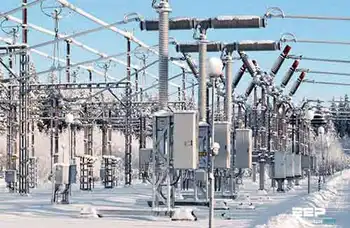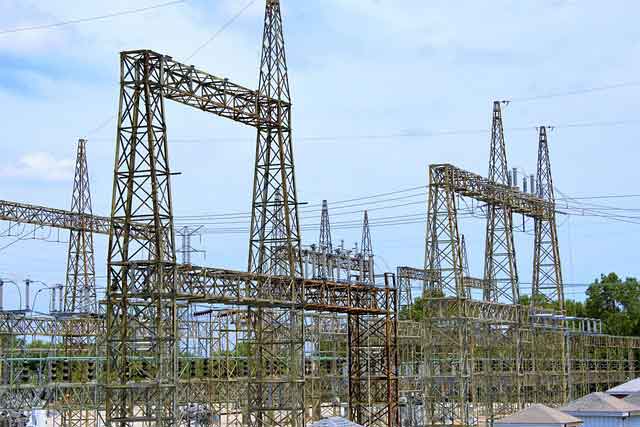Buckley first in Space Command to add big solar
By Associated Press
Protective Relay Training - Basic
Our customized live online or in‑person group training can be delivered to your staff at your location.

- Live Online
- 12 hours Instructor-led
- Group Training Available
The base in Aurora already has installed two small solar-power arrays, special walls that use the sun's warmth to help heat buildings and have improved energy efficiency. Now Buckley Air Force Air Base/460th Space Wing plans the addition of 5,040 solar panels that will cover six acres and generate up to 1.2 megawatts of electricity.
AMEC, an international engineering and project management company, is teaming up with Denver-based SolSource on the $7.3 million installation. The companies expect to start construction in November and finish around May.
Maj. Eldrick Hill, the base civil engineer, said the solar array will generate about 5 percent of Buckley's electricity when it's operating at full capacity.
The array will also help Buckley meet the mandates of an executive order by former President George W. Bush that requires the military to get at least 5 percent of its electricity from renewable energy by 2012 and 7.5 percent by 2015.
And the array is believed to be the first major solar project in the Air Force Space Command. Besides that, Hill said the base is excited about doing its part to help the environment and increase energy independence.
"It's good stuff," Hill said with a smile, standing near the field the modules will soon occupy.
Because jets will be flying overhead, Hill said the solar panels will be anti-reflective to prevent glare and will be built to sustain up to 150 mph winds.
Sharon Gill is a contractor who works with the base to improve energy efficiency. She said the environmental analysis for the solar project covered 50 acres, so there's room to greatly boost the capacity.
AMEC, the general contractor, was awarded the $7.3 million project in June. Steve Felice, the project manager, said the company, which has offices in Colorado, has worked on a number of ventures with the military, including installation of wind turbines at F.E. Warren Air Force Base in Cheyenne, Wyo.
Buckley's array will be the second-largest at a military base in Colorado. Fort Carson south of Colorado Springs has a 2-megawatt solar installation.
Nellis Air Force Base in Nevada has an array covering 140 acres that produces 14.2-megawatts, the largest solar installation on a military base nationwide.
SolSource, started in 2004, has worked on a number of military projects in Colorado. The company put in two separate 10-kilowatt solar arrays on buildings at Buckley and walls funneling sun-heated air to heat buildings.
The project will be the largest so far for SolSource, which also does work for homes and businesses. Jeff Scott, the company's founder and president, said he started talking to military officials and attending expos at bases a few years ago to expand the company's reach.
"At the beginning, when we created SolSource, our goal was to mainstream the green," Scott said.
Both Scott and Felice said the federal government's growing use of renewable energy will spin off benefits for homeowners and businesses.
"As the military and U.S. government continue to lead in renewable energy as a consumer, buying it, implementing it and using the power," Scott said, "it accelerates the industry to make it more affordable to people who don't have trillion-dollar budgets to spend."
Felice said the project means work for U.S. companies because AMEC and SolSource are required to buy American-made materials. Fort Collins-based Advanced Energy Industries will supply the inverters, which connect the solar array to the electric grid.
Scott said SolSource, which has 33 employees, will go from 10 to 15 permanent jobs as a result of the work.











